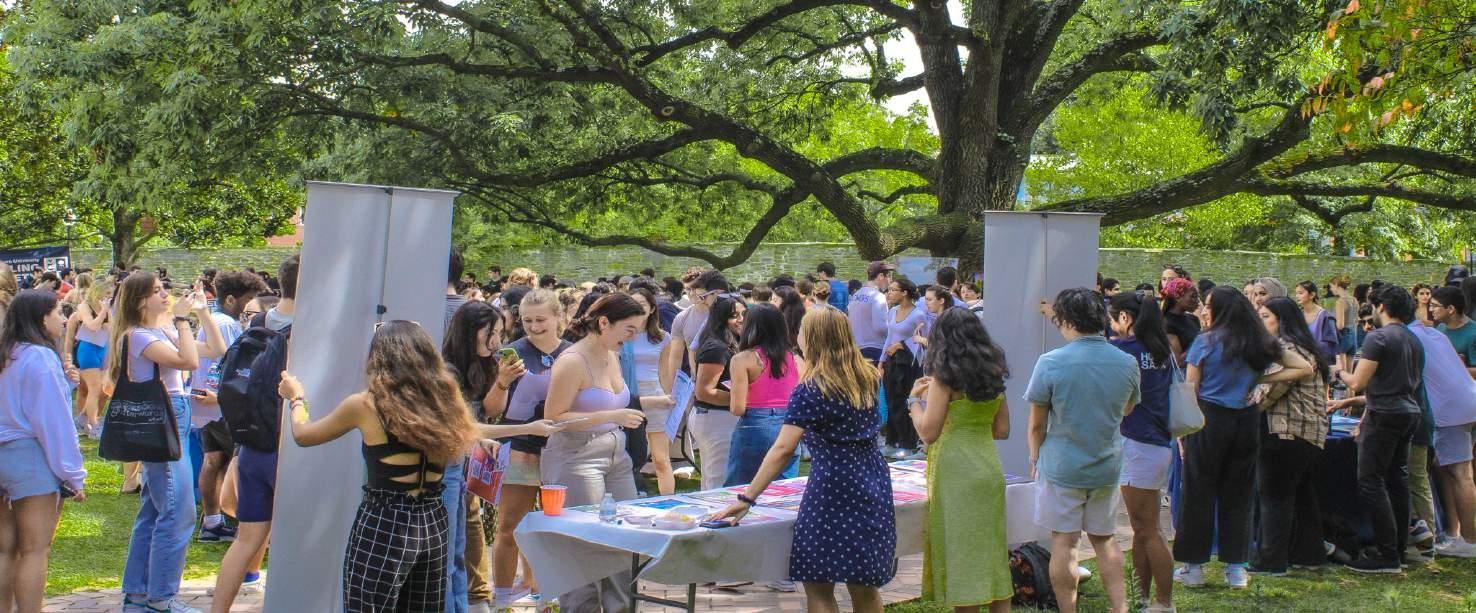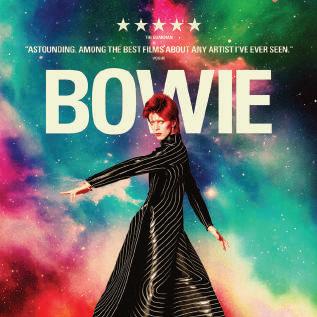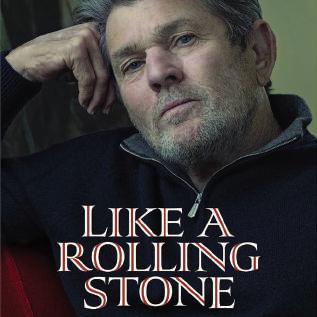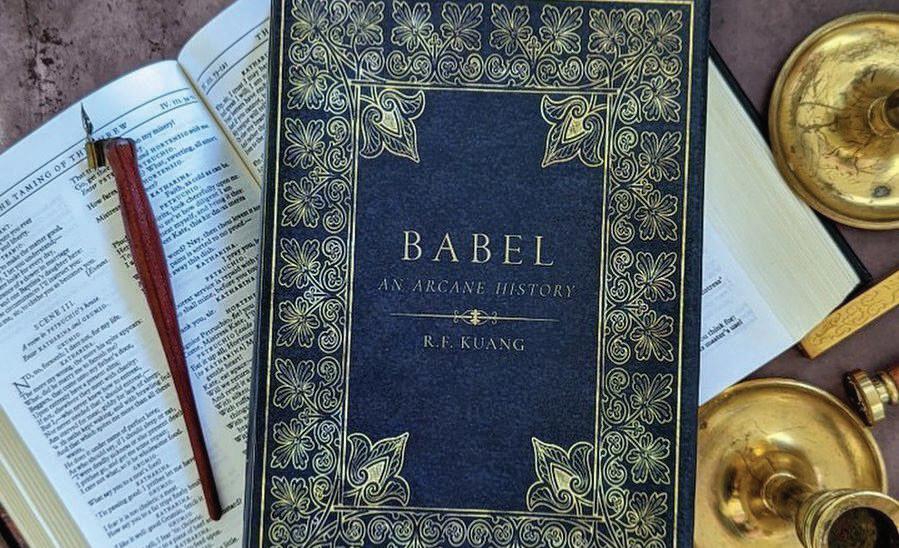Clubs Grapple With Exclusivity, Stress Culture
 Elyza Bruce and Shreya Dudeja
Elyza Bruce and Shreya Dudeja


 Elyza Bruce and Shreya Dudeja
Elyza Bruce and Shreya Dudeja

Students and Georgetown administrators are debating ways to address the consistent culture of exclusivity in the club application process.
Elyza Bruce and Shreya Dudeja Hoya Staff WritersUnder late-summer leaves and a light Saturday breeze, students swarmed to different fold-out tables in hopes of finding a new home. After days, even weeks, of introductions, interviews and applications, students anxiously awaited their final decisions.
For some, receiving their decision was a time of celebration. For others, it put a damper on their school year right as it began.
The academic year at Georgetown University does not begin in earnest until the semesterly Council of Advisory Boards (CAB) Fair, where student organiza tions across campus — from consulting clubs and student publications to gaming clubs and acapella groups — gather on Copley Lawn to promote them selves to the masses.
Held Sept. 10 this year, CAB Fair is an important time for students to discover Georgetown’s diverse array of student organizations. Yet in some cases, the fair is students’ first introduction to Georgetown’s no
torious club culture.
Georgetown’s club culture has long been a conten tious topic of discussion among students, and now even the administration has responded with pro posed changes from the McDonough School of Busi ness (MSB) to club structure. Stuck in the middle of these debates of fairness and organization are exas perated underclassmen like Samantha Induni (COL ’25), who wonder how they can get involved with the things they love without the fuss.
“In my experience, I have found club culture to be pretty unwelcoming and unnecessarily competitive,” Induni told The Hoya
But tackling Georgetown’s club culture is no easy task — and there are legitimate concerns that one wrong move could crumble the delicately construct ed Jenga tower that is clubs at Georgetown.
Georgetown is known for having numerous preprofessional clubs in areas like consulting, finance and tech, with rigorous application processes and

traditions of exclusivity.
For instance, Georgetown Student Capital Part ners (GSCP), founded in Fall of 2020, is a finance club that advises private investment. According to its chief executive officer, Sanjay Gospodinov (MSB ’23), the club had an acceptance rate of 14%, which is an even higher rate than they plan to have in the future.
“In a normal year we would likely aim for around 6%, as we would no longer be in growth mode,” Gos podinov told The Hoya.
Another pre-professional club, Georgetown Global Consulting (GGC), is an international development-focused consulting club that pro vides pro-bono support to nonprofits from around the world. Its acceptance rate is confidential, but Sanjana Ranganathan (SFS ’25), director of public relations for GCC, said the club’s overall exclusivity is due to the large volume of applicants vying for a limited number of positions in the club.
“As it stands right now, our capacity is not infinite. We aren’t able to take on as many people who are interested and that’s where the application process
The annual CAB Fair, held this year on the front lawn on Sept. 10, is a time for student organizations to promote their missions to curious Hoyas. Clubs vary from com pletely open to highly exclu sive, something first-years often don’t expect.
 COURTESY MIRANDA XIONG
COURTESY MIRANDA XIONG
comes in,” Ranganathan told The Hoya
For students like Sahana Vivek (SFS ’26), who applied to numerous consulting and finance clubs, such justifications overlook the stress that the club process causes.
“The application process felt like reapplying to college, as they were very intensive and required mul tiple rounds of essays and interviews,” Vivek wrote to The Hoya. “Getting bombarded with that the first couple weeks of my college experience was blindsid ing and overwhelming, and I felt a lot of the applica tions stressed hypercompetitive exclusivity with ac ceptance rates less than the school itself.”
Induni also expressed concerns that the studentrun nature of many clubs creates the potential for personality bias during the application process.
“I have found that a lot of times, I feel like this is just the nature of student run clubs, that it can end up being based on personality as opposed to based on credentials,” Induni said. “Of course, there are going to be some people you like better, who are a friend of a friend, or have a personality you really like, and that’s going to stand out during the interview.”
Gospodinov acknowledged personal bias was a major problem for student-run clubs, noting some of his organization’s steps in countering this inequity.
“If you know a candidate and you haven’t marked ‘bias’ in our internal system, and we find out that you knew that candidate in any capacity, you will never interview again, and probably worse will happen,” Gospodinov said. “We take that very seriously.”
Nevertheless, Induni noted that she has not en tirely disliked her club experience. Rather, she said pre-professional clubs pose particular problems.
“I’ve really liked the affinity spaces and clubs on campus and I’ve had a lot of friends who have been happy with sororities and fraterni ties on campus. The main thing I’ve been dis satisfied with is the academic and pre-profes sional side of clubs,” Induni said.
A welcome alternative to the pre-professional cul ture on campus are the numerous clubs that have no applications and few barriers to entry.
The Georgetown Bipartisan Coalition (GBC), for example, hosts roundtables that are open to anyone in the Georgetown community every other week to discuss significant political issues. Anyone who is on the email list is considered to be a member of GBC.

Tyler Van Patten (COL ’23), president of GBC, said that the openness of his club, and of its roundtables in particular, is inherent to its mission.
“It doesn’t just have to be people in the club, it can be anyone,” Van Patten told The Hoya. “We’ve had alumni before, grad students. Anybody can come, and the idea is we just talk about the issue.”
Van Patten noted that other non-application clubs, such as Georgetown University College Repub licans, require individuals to attend three club events a semester to be an official member. He sees such a requirement as unnecessary for his club.
“There’s no real reason to have that distinction between who’s a member and who’s not,” Van Patten said. “We have events for the Georgetown commu nity, so anyone who wants to attend can attend.”
Van Patten said that he is inspired to promote the
openness of his club to improve the impressions for first-years entering Georgetown, for whom club cul ture creates a hostile environment.
“I would say the number one word to describe club culture my freshman year was ‘toxic,’” Van Patten said. “From the perspective of a new stu dent at Georgetown, the fact that such a large percentage of clubs, and the most visible clubs on campus, require extensive applications and interviews creates a negative atmosphere, creates a sense of competition amongst students that is just unnecessary and not productive.”
Even if the club itself is open for general member ship, however, Carina Medrano (SFS ’25), secretary for the Asian American Student Organization (AASA), said she appreciated the value of leadership positions that require applications and interviews.
“I think it was really cool that we do have executive boards running these clubs because that shows that clubs are student-run and student-led,” Medrano told The Hoya. “You are able to be a part of these clubs and make a difference as early as freshman year. I never thought coming into Georgetown that I’d be the freshman representative to two cultural clubs.”
Clubs like GBC and AASA are managed by the Student Advisory Commission (SAC), a student-run body with nominally strict rules on exclusivity. These rules often have not been enforced, according to Lil lian Beckwith (SFS ’23), who was a commissioner for SAC in Fall 2021 and Spring 2022.
According to Beckwith, SAC has tried to be more vigilant this year in promoting club inclusivity.
“SAC has two main priorities that are derived from the university’s broader mandate: clubs can’t be duplicative and they cannot be exclusive.
So, SAC tried to reinforce those rules,” Beckwith wrote to The Hoya. “There wasn’t really a mecha nism for addressing current clubs that broke these rules when I was there, but new clubs were under much more scrutiny and they wouldn’t be approved if they were duplicative or exclusive.”
In response to the complaints from students and beyond, the Georgetown administration has now begun efforts to make club culture more inclusive. For example, the MSB has proposed a two-tiered system for its affiliated clubs, such as Georgetown Student Capital Partners. The first tier would retain its current application process, while the second would be open to all students.
Beckwith believes such a solution would receive mixed reviews by students..
“I am aware of the push to create a two-tiered system. I believe it’s going to be very problematic in the future, but there’s logistical issues outside of the MSB Dean’s Office that are pushing club inclusivity. The university’s broader mandate is forcing this change,” Beckwith said.
Beckwith suspects that a two-tiered system would impact the dynamic with future employ ers. These clubs can act as proactive recruiters, hiring only the cream of the crop.
“From the perspective of someone who works very closely with recruiters for one of the clubs I’m a part of, I’ve been able to see how they value the clubs at Georgetown,” Beckwith said. “Many of them seek out
In response to long-standing student complaints, the university is now looking to improve the club experience: the MSB has proposed creat ing a two-tiered system for competitive clubs.
forming relationships with student clubs before the career center or in tandem with the career center be cause it allows them to target certain students with certain interests. I think a two-tiered structure would definitely change this dynamic.”
Gospodinov, whose club would be directly impacted by the MSB’s proposal, is pessimistic about the impact. He believes the administra tion doesn’t properly understand the function of pre-professional clubs.
“We’re much more like small companies than we are high school clubs,” Gospodinov said. “They think of us as high school clubs. It’s a mis match and they’re not actually trying to listen to us and figure out a good solution.”
A university spokesperson said that deliberations are continuing between all parties.
“The proposed structure is still under develop ment at the McDonough School of Business. This structure includes all facets of managing the student organizations within the MSB with an eye on access, inclusion, and community building. Nothing is final ized and more discussion is planned on this topic, which will include student involvement and leader ship,” the spokesperson wrote to The Hoya
Regardless of what the administration imple ments, Ranganathan said that GGC is trying to ex pand its numbers and make the club more acces sible — particularly to denied members or those dismayed by the process.
“This year, we have an open consulting case work shop where anyone, regardless of how far they make it in the application process, can learn a bit about
consulting and how to approach consulting case in terviews,” Ranganathan said. “One way clubs could be more open is by expanding the professional devel opment resources to a wider Georgetown audience.”
Other ideas include allowing for more duplicate clubs, as suggested by Gospodinov, particularly in popular fields for students such as consulting.
“There’s so much student appetite for consult ing,” Gospodinov told The Hoya. “So even though one executive board cannot manage 200 consultants, you should allow students to create more consulting clubs than already exist.”
Ultimately, this appetite for clubs boils down to the tight bonds of friendship that they en courage. To Van Patten, this is a definite positive of Georgetown’s club culture.
“For a lot of people, their friend groups are mostly defined by their club connections. And for those peo ple, I’m sure that they really appreciate that club cul ture is the way it is because if it wasn’t that way they wouldn’t have the friends that they do.”
No matter how the Georgetown community moves forward, clubs will remain a highlight of stu dents’ experience at Georgetown — if you can ignore the process of getting there.
“The communities at Georgetown tend to be found in these clubs. I think that’s a great thing. If you’re going to find your community, why not find it around common activities that you like or a pre-professional area that you’re into? It kind of allows people to be in social environ ments with people who have a lot in common with them,” Gospodinov said.

The drama surrounding this anticipated film proved a bad omen, as even a compelling performance from Florence Pugh could not save the film from its the unfulfilling plot and half-baked themes.
 by: Olivia Wilde
Florence Pugh, Harry Styles, Chris Pine
Stephen Purdum Hoya Staff Writer
by: Olivia Wilde
Florence Pugh, Harry Styles, Chris Pine
Stephen Purdum Hoya Staff Writer
You better worry, darling.
Despite the nonstop press surrounding dra ma during filming, “Don’t Worry Darling,” Ol ivia Wilde’s sophomore directorial feature film, starts out strong. However, the dazzling pro duction design and a powerhouse performance from Florence Pugh cannot save the film from its wildest ambitions.
“Don’t Worry Darling” follows Alice (Florence Pugh), a housewife in a picture-perfect 1950s desert town called Victory. Victory is replete with row after row of tidy homes, manned by equally cheerful wives keeping house between rounds of martinis at the country club.
However, the facade of Alice’s ostensibly per fect life begins to crumble following a harrow ing encounter with her friend Margaret (KiKi Layne). Despite repeated assurances from her adoring husband Jack (Harry Styles) that she has nothing to worry about, Alice quickly begins to question her surroundings.
Victory’s suburban utopia, of course, proves too good to be true. But the film gives the audi ence almost no time to digest the picturesque
setting before it all burns.
The period between Alice questioning the Victory Project and actually getting answers is excruciating, which renders the film highly repetitive. Alice continually questions her world, but little information is provided to Alice in the first act, leaving the viewer feel ing stalled and frustrated.
That said, even if much of the film can feel purposeless, the film is never ugly. Regardless of Wilde and Katie Silberman’s nonsensical script, the entire production team on “Don’t Worry Darling” deserves nothing less than a standing ovation.
From beginning to end, the film is a visual feast, with every department taking full advan tage of the artistic opportunities presented by the period setting. The oasis paradise of Victory is perfectly designed, which, combined with Wilde’s tight direction, makes the visual as pects of the film excellent.
However, one cannot discuss the high points of “Don’t Worry Darling” without mentioning Florence Pugh. Occupying the majority of screentime, Pugh delivers a per formance that matches, if not exceeds, the lofty highs of her career.
Even when the film drags, Pugh herself re mains electric and consistently compelling, particularly in contrast to the often less than standout performances of many of her co-stars — Styles in particular.
While many have thoroughly lambasted the pop-star’s performance, and almost too much, Styles certainly earns no laurels. The only ac tor operating on the same level as Pugh is Chris Pine in the role of Frank, the charming and enigmatic leader of the Victory Project.
In fact, one of the film’s most thrilling scenes comes as Pugh and Pine spar at a party, while the rest of the cast, including Wilde, do little more than gawk. But with the exception of Pugh and Pine, the actors in “Don’t Worry Dar ling” fail to deliver anything of particular value.
Regardless of its gorgeous packaging, the plot of “Don’t Worry Darling” is severely lacking. While its poorly paced story with numerous un fulfilled subplots is damaging enough, the film fails to extensively develop its themes.
Wilde firmly declared that the film centered on themes of female pleasure, promising a femi nist message. But given this statement, Wilde’s commentary is simplistic, directionless and frankly limp at best — and certainly not feminist.
Through a series of baffling and completely unexplained story choices in the final 30 min utes of the film, Wilde attempts to deliver the radical feminist message she promised. Other than a general stance against incel culture, the limitation of women to the domestic sphere and female gaslighting, the film fails to say any thing unique — let alone groundbreaking — about modern feminism.
Wilde’s commentary is neither as cunning nor as cutting edge as she believes. Given the elaborate amount of waiting required before these grand statements reveal themselves, Wilde’s ultimate point fails to make much of an impact besides the shock value of the twist which delivers it.
While “Don’t Worry Darling” is one of the most visually pleasing films of recent memory — and houses yet another masterful perfor mance from Florence Pugh — its unsatisfying plot and half-baked themes make everything else meaningless.

“Don’t Worry Darling” is perhaps worth see ing for those intensely curious to know the film’s secrets, but it is certainly not the poi gnant, emotional masterpiece Twitter would lead you to believe.

If you’ve been out and about in Washington, D.C., this summer, you’ve probably noticed a recently opened plant-based eatery or vegan fast food spot in your neighborhood. From D.C. Vegan to PLANTA, the District has embraced a wave of plant-based eating that has swept the country. This trend, motivated by personal nutrition, environmentalism and animal welfare, has inspired some of the city’s most innovative restaurants, which have learned to manipulate plant-based products into every imaginable form.
For those who aren’t familiar, plant-based or vegan eating is the practice of consuming foods that are derived solely from non-animal products.
The city’s plant-based eateries run the gamut from fast food joints like HipCityVeg, where one
can find a guilty pleasure Smokehouse Burger, to Bethesda’s PLANTA, which serves up elegant vegan sushi and carpaccio. On the other hand, D.C. Vegan, a Dupont-based deli that opened in 2021, offers meaty favorites in plant form. Its meatball bowls, buffalo cauliflower wings and king trumpet calamari rings are so good you won’t miss the meat. D.C. Vegan has also taken things a step further by introducing a line of botanical cocktails and nonalcoholic beverages, which creatively blend fruits, vegetables and herbs into novel mixed drinks.
The move towards plant-based eating is not a local phenomenon. People all over the United States are waking up to new food options in their cities. For instance, Nuno’s, a taqueria in Dallas, Texas, is changing its community’s mindset about healthy eating by recreating local favorites with plant-based ingredients. The taqueria’s owner, Aurelio Arias Jr., was inspired to start the restaurant when he witnessed his dad reverse his heart disease by switching to a plant-based diet.
This summer, actor and comedian Kevin Hart
made waves in the vegan community with an announcement that he would be launching a vegan restaurant chain in Los Angeles. Hart House’s August 2022 opening drew hundreds of curious eaters and is likely to expand given its popularity thus far. With this new endeavor, Kevin Hart joins Colin Kaepernick, Woody Harrelson, Billie Eilish and many more celebrities who have endorsed and practiced a plant-based lifestyle.
As eating habits have changed across the United States, the D.C. city council is seeking to adapt with the Healthy Hospitals Amendment Act of 2022. This bill, proposed by Councilmembers Mary Cheh, Janeese Lewis George, Charles Allen and Brooke Pinto will make it mandatory for hospitals in the District to offer a plant-based meal to patients and incorporate “healthful” foods into their other options. Doctors have voiced strong approval to the bill, which they say will help address some of the city’s leading causes of death like heart disease, cancer, stroke and diabetes.
Similarly, universities are rethinking what
they serve students, and many have incorporated more options for vegans and vegetarians in recent years. For example, Leo J. O’Donovan Dining Hall, Georgetown University’s main campus dining hall, has made improvements to the cuisines it offers, adding a vegetarian stand at The Table at Leo’s, and offering plant-based proteins at Olive Branch, Sazón and 5Spice.
The Animal & Vegan Advocacy Summit will be here in the District Oct. 20 to 23, and groups from all over the world will come together to educate visitors on environmental and animal welfare issues.
Whether you are vegan or not, check out some of D.C.’s plant-based eateries this fall — whether it’s comfort food at HipCityVeg or a sophisticated dinner at PLANTA, you just might find that you don’t miss the meat.
Nikhil Nelson is a sophomore in the McDonough School of Business. Green Thumb appears in print and online every other week.
 By Nikhil Nelson
By Nikhil Nelson

Based on the devastating 1982 avalanche at a Lake Tahoe, California, ski resort, “Buried” traces the events of that day, the extensive search and rescue missions that followed and the lives of the survivors today. Released in theaters Sept. 23, the movie has received exceptional reviews, and is a must-watch for nonfiction and docu mentary lovers.

A documentary on the life and work of rock icon David Bowie, “Moonage Daydream” follows in the flamboyant fashion of its subject’s work and style. The immersive film goes beyond Bowie’s music and into his personal life, as director Brett Morgen uses never-before-seen footage to cre ate a complete picture of the artist.

The new memoir by Rolling Stone Magazine’s cofounder documents his unsteady life while tracing the beginnings of the now-ubiquitous music maga zine. Wenner is unapologetic in his account of the debauchery and controversy that surrounded him, the publication and the musical icons he covered and with whom he worked.

This fall, 2000s rap star Cam’ron teamed up with producer A-Trak to create “U Wasn’t There,” a fulllength album that showcases Cam’ron’s versatil ity and A-Trak’s knack for sampling. For instance, the lead single, “All I Really Wanted,” has an ad dictive beat based on a pitched-up soul sample, setting a diverse tone for the rest of the album
 Nikhil Nelson Columnist
Nikhil Nelson Columnist
Grab your fountain pen, light your candelabra and prepare for a journey through the shadowy halls of the University of Oxford in Rebecca F. Kuang’s (SFS ’18) newest novel, “Babel: Or The Necessity of Violence: An Arcane History of the Oxford Translators’ Revolution.”
“Babel” follows Robin Swift, an orphan from Canton, China, who is invited to live and study in London by the mysterious Professor Lovell. After completing his studies in Greek and Latin, Robin enrolls in Oxford’s Royal Institute of Translation, housed in a glorious tower aptly named Babel.
Kuang paints a vivid, almost Dickensian, picture of 19th century London and Oxford, U.K., from the seedy industrial underbelly to the dazzling Gothic architecture. Kuang imag
ines an alternative history in which the British Empire is powered by magical silver bars that can achieve a variety of effects such as healing the sick, granting invisibility and powering in dustrial machines.
The power of the silver is unlocked by the translators of Babel, who use the intricacies of the language to activate the magic. The power of the bars, however, is limited to the rich and pow erful English aristocrats who can afford them. This sets for an emotional, rich tale about the woes and dangers of English colonialism.
“Babel” is imbued with Kuang’s deep love of language, books and academia, as she guides the reader through the tangled weeds of etymology, linguistics, English politics and colonial history.
As the reader attends classes at Babel along side Robin, Kuang manages to make lectures covering the theory of translation and linguis
tics feel lively and full of intrigue. Throughout, Kuang guides the reader along with footnotes, the contents of which range from commentary on Adam Smith’s “The Wealth of Nations” to side tangents illuminating the personal histo ries of the characters.
Robin quickly forms a close bond with fellow students at Babel, notably characters Ramy, Vic toire and Letty. Kuang builds a loyal and loving relationship among the quartet that feels au thentic, complex and utterly endearing. How ever, their relationship is strained by the racial and sexist prejudice flung at them from their white male peers and the exhausting burnout culture of academia.
The characters also undergo a different kind of transformation: assimilation. Robin, who is half- Chinese, Ramy, who is Indian, and Vic toire, who is Haitian, are forced to conform to

white English cultural norms to survive at the cost of losing their senses of cultural identity and native language.
“Babel” is also a masterwork in character de velopment. Robin begins as a wide-eyed orphan desperate for a sense of stability, later transform ing into a dedicated student struggling to rectify his complicated relationship with Oxford. Later, he is sharpened into a razor-edged revolutionary, determined to overthrow the institutions of ex ploitation that Oxford represents.
Kuang invites the reader deep into Robin’s psyche, questioning his moral values and forc ing him to confront the nefarious origins of the academic world he inhabits. All the while, Kuang plays a game of deception: with one plot twist after the next, the reader is unsure which charac ters are friends and which are foes.
Before “Babel,” Kuang made her writing de but with The New York Times bestselling tril ogy “The Poppy War,” an epic fantasy inspired by Chinese history. Among many themes, “The Poppy War” explores the devastation of war and colonialism. In “Babel,” Kuang finishes themes she first started in “The Poppy War” by unpack ing the European colonial project with vigor ously researched finesse.
At its core, “Babel” is a nuanced exploration of contradictions. Oxford is the setting of the best days of Robin’s life, days that he shares among beloved friends, but it is also a place that makes him feel unwelcome because he doesn’t fit the accepted mold: English, wealthy and white. While Oxford is an enchanting place of marvel ous academic discovery, it is also a pillar of Brit ain’s cruel colonial project.
Babel was founded to train Englishmen in the languages of the empire’s colonial hold ings — all to serve the interests of the British Crown. Contributing to the colonial exploita tion even further, Babel uses the languages of non-European countries to unlock the power of the silver bars while hoarding all the gifts the silver bars provide. Robin grapples with this moral dilemma throughout the novel: he struggles to love a place that is embroiled in the exploitation of his native land and treats people like him with utter contempt.
“Babel” is an ambitious, enchanting and heart breaking triumph of a novel that is both a love letter to academia and an uncompromising in dictment of its crimes. Kuang prompts her read ers to admire the beauty of academia’s shining towers, but also to interrogate the foundations upon which they were built.

Alec Benjamin, aided only by an array of lights and his band, developed a deep, emotional connection with his audience. He shined in minimalism, creating an intimate venue space.
Noa Bronicki Managing EditorThe incredibly charming boy next door has made his way back to Washington, D.C.
Less than a year after his last show at the 9:30 Club, Alec Benjamin celebrated his newest album, “(Un)Commentary,” at The Anthem Sept. 23, and showed his evolution as an artist and performer.
Although 28 years old, Benjamin has a youthful appearance that allows him to bond with fans of all ages. Benjamin does not have a unique stage name or a flashy per sona, and instead chooses to present himself as authentically as possible. Half the people in line thought his name was Alex, not Alec, but as soon as he started to play, they were all dancing and singing along.
Benjamin had two opening acts, the first of which was Madeline the Person. Madeline came up on stage with a colorful street-style outfit and a multicolored, stickered guitar, setting a light tone for her set.
Madeline appeared nervous and frequent ly tugged at her sound equipment. How ever, she performed complex vocal strings
from her own original songs, and the genu ine smiles she gave the audience when she heard fans singing along outshined any stage fright.
Claire Rosinkranz followed Madeline, leaping onto the stage with boundless ener gy that she maintained throughout her halfhour performance. Famous for her hit song “Backyard Boy,” which was viral on TikTok in 2020, Rosinkranz already had many fans in the audience.
Rosinkranz twirled across stage with her iconic space bun hairstyle, showing incred ible vocal stamina in the process. Compared to Madeline, Rosinkranz was a seasoned performer with perfectly coordinated move ments and facial expressions throughout the show. While Rosinkranz was a tough act to follow, Benjamin delivered.
Benjamin opened his set with “Devil Doesn’t Bargain,” one of the most popular singles from his new album. Benjamin had previewed this song before its release during his show at the 9:30 Club last year, marking a full circle moment.
The audience gushed with excitement after the first song, and Benjamin maintained this en
ergy by following it up with “If I Killed Someone For You,” a beloved song from his debut album.

Throughout the show, Benjamin alter nated between new hits and old favorites.
Although the audience sang along to the choruses of his new songs, they were signifi cantly less familiar with the lyrics. The audi ence sang along to every word of Benjamin’s old songs — so much so that at times he would stop singing and just turn the mic to face the audience.
Compared to last year, Benjamin appeared much more comfortable at The Anthem than the 9:30 Club. Rather than just standing in one spot with his guitar, he moved around with nonchalant, natural movements.
Benjamin was extremely comfortable with his band members, at times gesturing to them and conversing with them on stage.
Their camaraderie transferred to the audi ence, especially when the band members signaled the crowd to start clapping or turn on their flashlights to engage with the songs.
During interludes, Benjamin shared mem orable stories from his life. Before beginning “Shadow of Mine,” he explained that the song was written about failing to outrun his
past. Later in the show, he shared a lighter, unrelated anecdote, joking about his frustra tion with a fifth-grade teacher who refused to accept “BBQ” as the correct spelling for barbecue in a competition.
One of the show’s special moments was when Benjamin sat at the piano and played “Paper Crown,” one of his first singles which was removed from Spotify after his contract with record label Columbia ended. After playing the song, Benjamin jokingly said that it was a mistake and asked fans to de lete all their videos of the performance.


Despite the large venue, Benjamin and his band kept the show simple. Rather than in corporating impressive sets and visuals, they relied only on lights and the music. Benjamin glowed the most when it was just him and his acoustic guitar. This was most apparent in “Hill I Will Die On,” as the simplicity of the acoustic performance highlighted his vocal skills and the complexity of his lyrics.
In just under a year, Benjamin has made impressive strides both as a musician and performer. What’s next for the pop star? As the chorus of “Hammers” repeats, “Only time will show.”
a genre, horror revolves around the mo ment when the ordinary turns eldritch — when safety dissolves into danger and when what was once familiar becomes alien.
In John Carpenter’s “Halloween,” a cozy sub urban neighborhood is transformed into a seri al killer’s slaughter-ground. In Wes Craven’s “A Nightmare on Elm Street,” the security of sleep gives way to, well, nightmare.
“Barbarian,” director Zach Cregger’s latest offering, is no different. Combining themes of sleep and suburban life into one, Creg ger channels an Airbnb rental into a house of horrors that spawns 2022’s most chilling creature feature.
Starring Georgina Campbell as Tess, a young professional sojourning in a run-down Detroit neighborhood for a job interview, “Barbarian” begins with a minor inconvenience: Tess dis covers that her Airbnb has been mistakenly double booked. The other occupant — Keith, portrayed by Bill Skarsgård from “It” (jarring
ly without clown makeup) — seems decent enough, offering to let Tess stay the night until they can contact their host in the morning. But he is not without a certain awkwardness that makes for tense viewing.
Indeed the early minutes of “Barbarian” don’t really feel like a horror movie at all, instead like a slow-burn thriller or strangely-rendered romance. The viewer’s fear certainly starts to tingle with Keith’s rambling insistence that Tess join him for a glass of wine but after Tess acquiesces and partakes, our view on Keith soft ens. It turns out he’s also in town for business, scouting out properties for redevelopment. No danger here — just a mixup turned meet cute.
Yet as Tess returns from her job interview the next morning, she discovers that the neighbor hood housing her Airbnb is a dilapidated ruin. A close encounter with a strange man lurking the neighborhood’s streets leads her to seek shelter in the house’s basement, where she discovers a hidden door leading to an expansive, chthonic tunnel system and a dimly lit room containing a mattress, a bucket and a camera.
I won’t ruin the insanity of what unfolds next, but after Tess’s discovery the film kicks itself into high gear. Horror movies have always re lied heavily on ambient and dynamic settings (the mutant jungle from “Annihilation” or the
iconic Overlook Hotel from “The Shining” spring to mind), but the claustrophobic tun nels in “Barbarian” do enough to stand out from the crowd.
With unknown terrors lurking over every character’s shoulder, composer Anna Dru bich’s blood-curdling score sets up a particu larly eerie tone; Cregger’s direction transfers us back to the dank boiler rooms, musty base ments and creaking attics that terrorized our childhoods. However, this time, the unknown will not only contain a few spiders and storage bins. “Barbarian” means business.
For a movie that starts off so sedately, “Barbar ian” accelerates into madcap carnage at break neck pace. Fear of the unknown really only works when the darkness is eventually illumi nated, revealing danger, death and blood — a triumvirate that Barbarian delivers in spades during a disturbing, gory latter half.
Nevertheless, the film is equally adept at knowing when to slow down and flex Creg ger’s comedic chops, mostly through the de lightfully obnoxious performance of Justin Long’s AJ, a sleazily funny Hollywood type introduced in the film’s second act as the owner of the Airbnb.
AJ is crucial also for the film’s strong the matic component. While Cregger is not as

invested in thesis-building as Jordan Peele with “Nope” or Robert Eggers with “The Light house,” “Barbarian” commits itself to a sur prisingly earnest examination of sex and the patriarchy. “Men will walk all over you if you let them,” Tess grimly reminds Keith at the start of the film, referencing Tess’s hesitance to open up to Keith at the beginning of the film.
Unfortunately, for much of “Barbarian,” Tess is right. AJ, Keith and other male charac ters either hesitate to believe Tess’s account of the disturbing truths she uncovers in the Airbnb’s basement or actively exploit Tess for their gain. If the film’s gloomy tunnels set the table for the film’s horrifying main course, then its compelling cross-section of female debasement at the hands of men is an intriguing amuse-bouche, adding flavor to what might otherwise be a fun, twist-filled but topically bland flick.
There is no such thing as the perfect horror movie, but in “Barbarian,” Cregger has created an unequivocally excellent one — an unsettling tour de force that ought to be on the must-see list of every horror fan, die-hard or otherwise.
William McCall is a sophomore in the Col lege. Hoya Horror appears in print and online every other week.
 By Clayton Kincade
By Clayton Kincade